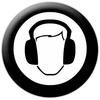Sunday, September 7, 2008
Medical Benefits of Taraweeh Prayers
Contributed by Sr. Sharifah Syed AliDr. Ibrahim B. Syed
Executive Director,
Islamic Research Foundation, Inc., Louisville, KY
Muslims derive therapeutic and spiritual benefits starting from the Wudu to the physical movements in the Salat-Takbir, Qiyam, Ruku, Sajda, Jalsa, and Tasleem.
We perform five daily contact prayers (Salat) and voluntary prayers (Sunnah, Nafl) throughout the year and Taraweeh prayers during the month of Ramadan. This results in moderate physical exercise particularly to every muscle in the body. Some muscles contract isometrically (same length) and some contract in approximation or isotonically (same tension). The energy needed for the muscle metabolism increases during the performance of Salat, resulting in a relative deficiency of oxygen and muscle nutrients. In turn this deficiency causes vasodilatation - an increase in the caliber of blood vessels, thereby allowing blood to flow easily back to the heart. The temporarily increased load on the heart acts to strengthen the heart muscle and to improve the circulation within the heart muscle.
During the month of Ramadan, additional prayers are performed after salatul Ishaa, called Taraweeh prayers, which vary from eight rakat to 22 rakat. There's a few minutes break after every four rakat for chanting and extolling the Majesty of Allah. After Iftar (berbuka puasa), the blood glucose level continues to rise from the food ingested. Just before the Iftar meals, the blood glucose and insulin levels are at their lowest level. After an hour or so after the Iftar meal, the blood glucose begins to rise and also plasma insulin. The liver and the muscles take up the circulating glucose. The blood sugar reaches high levels in an hour or two and the benefits of Taraweeh prayers come into effect. The circulating glucose is metabolised into carbon dioxide and water during the Taraweeh prayers. Hence, the Taraweeh prayers help in expanding the extra calories and improve flexibility, coordination, reduce stress-related autonomic responses in healthy persons, and relieve anxiety and depression.
In addition to the health-boosting qualities of the salat (Namaz), the Namazi (orang yang sembahyang) will be trained to be ever-ready for any unexpected physical exertion such as sudden lifting of children, chairs, or catching a public transportation vehicle. The elderly will accomplish this more securely and efficiently. Hence, this is an advantage for the elderly to maintain their physical fitness for a longer period of time. It has been observed that those who fast and perform the Taraweeh prayers report feeling much convalescing and robust.
Elderly
As human beings grow older, their physiological activity diminishes. As a result, their bones become thinner, and if not taken care of, will suffer from osteoporosis. This condition causes the fractures of the bones in the elderly when they fall due to a loss of bone mineral content and consequent sponginess of the bones. The bone then becomes structurally unstable, brittle and susceptible to fractures.
Because of repeated and regular movements of the body during salat, the muscle strength tendon power, joint, flexibility and the cardiovascular reserve are improved. Hence, salat and Taraweeh prayers enable the elderly to enrich the quality of life and to meet with unforeseen difficulties such as falls, which could injure their bodies. Therefore, Taraweeh prayers will improve their endurance, self-respect and self-confidence in being self-reliant. Even the thought or the intention of performing the Taraweeh prayers is sufficient to activate the sympathetic nervous system.
Beneficial Effects of Gentle Exercise
The Taraweeh prayer is considered to be gentle exercise. The beneficial effects of gentle exercise on the body are many which are elaborated here. Effects on Skeletal Muscle Unused muscles atrophy inspite of the availability of ample proteins. During the Salat and Taraweeh prayers, every muscle in the body contracts, some isotonically and others isometrically. This gentle exercise also enhances endurance and diminishes tiredness. It helps the incapacitated to make the most of their remnant capabilities. The blood flow in a resting muscle is low. During the Salat and Taraweeh prayers, the blood flow is greatly increased to the muscles. Blood flow sometimes increases even before the start of Taraweeh prayers, with just the thought of performing the Taraweeh prayers. In addition to needing fats, proteins, and carbohydrates, the human body requires minerals such as Potassium for nerve and muscle activity. It is found in fruits, meats, seafood and milk.
Effect on blood pressure and breathing
During the Taraweeh prayers, systolic Blood Pressure may rise (the larger number in B.P.) a little and the diastolic Blood Pressure (the lower number in B.P.) may remain unchanged or even fall. However, after the Taraweeh prayers are over, the B.P. may drop to just below normal levels, which is a welcome sign. Taraweeh prayers improve respiratory efficiency; circulation in the capillaries surrounding the alveoli, or air sacs, is increased, bringing about enhanced gas exchange and deeper breathing. The increase in the maximal consumption of oxygen is what makes the Namazi feel better. Those who perform the Taraweeh prayers, apart from the prescribed salat prayers, are more alert and active than those who do not perform the Taraweeh prayers, even after the age of retirement.
Effect on bones and joints
Taraweeh prayers improve physical strength and joint stability and reduce the risk of injury to the tendons and connective tissues. After age 40, the bone mineral density falls with age. Taraweeh prayers increase bone mineral density in both menopausal and in elderly women and prevents osteoporosis and maintains normalcy in bone structures. Salat and Taraweeh prayers improve lubrication of joints, improve movement, and maintain flexibility.
Effect on Cardio vascular system
Deep vein thrombosis (the most common cause of ulceration of the legs in the elderly) is prevented by performing Salat and Taraweeh prayers. A combination of moderate dietary restriction, both at the Sahur and Iftar meals, accompanied by the Taraweeh prayers, should achieve weight reduction. This will also reduce both fat and body weight, but fat-free weight will remain constant or may even increase slightly. Hence, during Ramadan one should not over eat at the Sahur and Iftar meals and continue to perform Salat and Taraweeh prayers in order to lose some of the excess weight. It is well known that exercise prevents coronary heart disease (CHD), increases high density lipo-proteins (HDL or healthy Cholesterol), increases maximum oxygen intake, slows the heart, lowers the B.P. slightly, decreases ventricular ectopic activity, enlarges the lumen of the coronary arteries and increases cardiac output.
Mental Health
It is a known fact that exercise improves mood, thought and behavior. Exercise improves the quality of life, induces greater sense of well-being and energy, reduces anxiety and depression, influences mood favorably and contributes to self-esteem and an aura of confidence; improves memory in the elderly especially with constant repetition of the Ayaat (verses) from the Glorious Qur'an and other Ayaat which exalt His Glory. This constant repetition of the Qur'anic Ayaat would help to screen the mind from the incoming thoughts.
It has been found by a Harvard University researcher. Dr. Herbert Benson, that repetition of a prayer, Ayaat of the Qur'an or remembrance (Dhikr) of Allah or muscular activity coupled with passive disregard of intensive thoughts cause a "relaxation response" that leads to the lowering of Blood Pressure and decreases in oxygen consumption and a reduction in heart and respiratory rates. All these are combined in the Taraweeh prayer, which is an ideal condition for "relaxation response." It combines repeated muscular activity with repetition of salat, chanting of words of glorification of Allah and of supplications. The Taraweeh prayer puts the mind in a relaxed state.
Conclusion
Islam is the only religion in which physical movements of salat and Taraweeh prayers are combined with spiritual exercise. When salat and Taraweeh prayers are practiced throughout a person's life, recurring every few hours or so, it trains a person to undertake the difficult task of meditation during physical maneuvers of salat and Taraweeh prayers, so that the Namazi (one who performs the salat) benefits both from spiritual as well as physical exercise. Salat and Taraweeh prayers are unique in that tension builds up in the muscles during physical maneuvers on the one hand, while tension is relieved in the mind due to the spiritual ingredient, on the other hand.
The following benefits have been noted among those who perform the Taraweeh prayers:
1) burning off calories and losing weight.
2) maintaining muscle tone and body composition.
3) joint flexibility (stiff joints are often the result of disuse, not arthritis).
4) increasing metabolic rate.
5) improving circulation.
6) improving heart and lung function and aerobic capacity.
7) decreasing heart disease risk profile.
8)increasing your sense of self-control.
9) reducing your level of stress.
10) increasing your ability to concentrate.
11) improving your appearance.
12) reducing depression and resistance to depression.
13) helping you sleep better and suppressing your appetite.
Evidence is also accumulating that those who perform regular Salat along with voluntary prayers can conserve and actually retard the loss of bone mass in the elderly, thus starving off the ravages of osteoporosis that afflicts both men and women.
It is also possible to retard the aging process and confer some protection to health in later life. Those who have performed Salat (Fard and Wajib). Sunnah and Nafl and Taraweeh prayers throughout life get protection and a positive effect in terms of health and longevity. They reverse the life-shortening effects of cigarette smoking and excess body weight. Even people with high blood pressure (a primary heart disease risk) reduced their death rate by one-half and their risk of dying from any of the major diseases is reduced. They also counter genetic tendencies toward an early death.
Hence Salat (Fard, Wajib), Sunnah, Nafl and Taraweeh prayers are necessary for Muslims to preserve life and their desirable qualities into old age.




